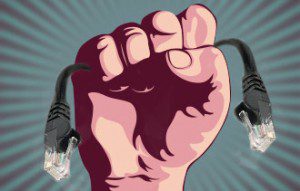Padraig Reidy: The Queen’s speech and free speech


Padraig Reidy: The Queen’s speech and free speech
Google’s Big Tent pitched up in Washington, DC, last Friday to challenge and debate the place of free expression in the digital age. Brian Pellot reports.
Padraig Reidy: Clegg kills Snooper’s Charter – for now
The Chinese government’s two main bodies of censorship, SARFT (State Administration for Radio, Film, and Television) and GAPP (General Administration for Press and Publications), are to merge and become one super administration. Although some denied the reports, the merge was announced during the 2013 session of China’s parliament, with the motion passed in March. Zhang Jin, deputy editor at technology publisher Popular Science Press, told state news agency Xinhua: Over the last 30 years of the opening up and reform period, both GAPP and SARFT have developed tremendously, but with this development of industry and flourishing of culture, many new problems have risen, for example the lockdown of departments, and individual management by each media type of themselves, and approval […]
Milana Knezevic: How the poor are being silenced
Some of India’s most prominant internet writers, researchers and policy analysts came together in Bangalore on 9 April to discuss “Strengthening Freedom of Expression on the Internet in India”, organised by the Internet Democracy Project. The subject has been intermittently making headlines in India, with a number of politically motivated arrests made under the Information Technology Act’s controversial Section 66a. Causing more confusion, in 2011, the Minister for Communications & Information Technology, Kapil Sibal, made headlines by asking social media intermediaries to take down “objectionable” content. At the time, the content in question seemed to be mainly objectionable to to the government itself. The content in question seemed to be mainly objectionable to the government alone. This caused a huge public uproar, […]
Brazil has been caught up in a fresh controversy over attempts to curb online criticism of politicians. This time, the main players are tech giant Google and the Chamber of Deputies, the lower house in the country’s congress. Brazil is already one of the world’s leaders in online content removal. In early March, the Chamber of Deputies’ Attorney General, Cláudio Cajado, contacted Google in order to request the removal of online videos and content hosted by the company, for being offensive to deputies. Cajado, a Democratas Party representative from the state of Bahia, denies that his requests were attempts to restrict freedom of expression, and claimed that he only wanted to speed up the processes that, when left to the Justice, could take months — or […]
Brazil has been caught up in a fresh controversy over attempts to curb online criticism of politicians. This time, the main players are tech giant Google and the Chamber of Deputies, the lower house in the country's congress. Brazil is already one...

PAST EVENT: 10 June: Caught in the web: how free are we online?

Brazil’s constitution protects free speech, but antiquated local laws often threaten this fundamental right in digital spaces. The latest statistics from Google’s Transparency Report show that Brazil issues the third most court orders for content removal behind the US and Germany. Recent cases, including the arrest of a Google executive for refusing to take down a video from YouTube, highlight the growing need for reform. The Marco Civil da Internet, a draft bill that’s been in the works for several years, aims to guarantee greater freedom of expression, net neutrality, and the protection of private user data online in Brazil. I recently spoke with Alessandro Molon, a congressman from Brazil’s centre-left Workers’ Party and the bill’s rapporteur, about what many are calling the first Internet Bill of Rights. The idea […]